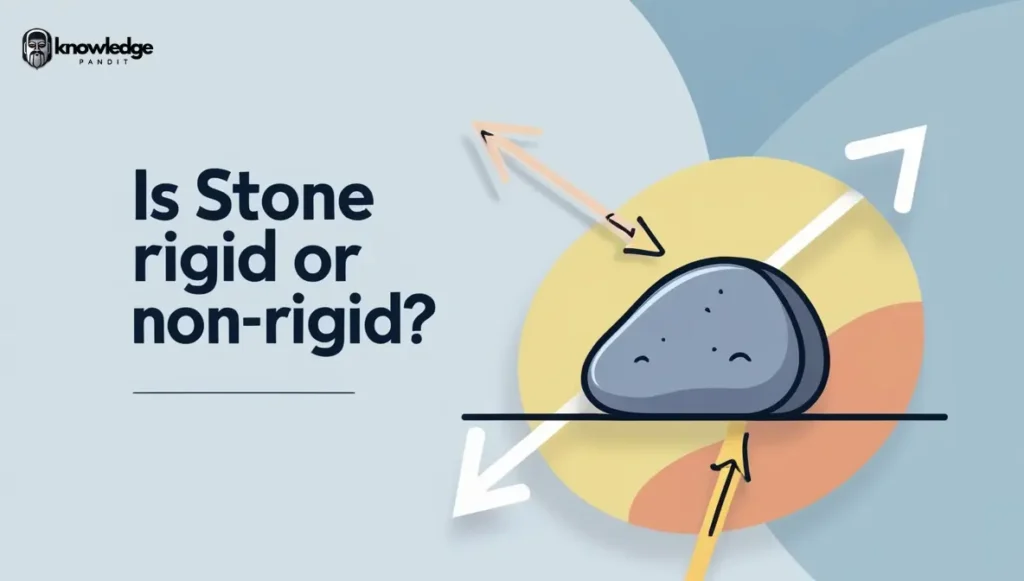Answer: Stone is rigid.
Rigidity refers to the property of a material that enables it to resist changes in shape or deformation when an external force is applied. This characteristic is a hallmark of solid materials, where particles are closely packed, and the forces of attraction between them are powerful. Stones, by this definition, are rigid materials. They do not deform or change shape under normal conditions, making them an excellent example of a rigid structure.
What is Rigidity?
The rigidity of a material depends on its atomic and molecular structure. In solids like stones, particles are bound together in a fixed arrangement, ensuring that external forces do not easily disrupt their shape. This property is crucial in determining how materials respond to stress and pressure.
Why Are Stones Rigid?
Close Packing of Particles:
Stones consist of tightly packed atoms or molecules. This dense arrangement ensures that the particles cannot move freely, contributing to their rigid nature.
Strong Intermolecular Forces:
The strong forces of attraction between particles in stones prevent them from shifting positions, even under significant pressure.
High Elastic Modulus:
The elastic modulus of stones, a measure of stiffness, is considerably high. This means that stones can withstand substantial forces without undergoing noticeable deformation.
Applications of Rigid Materials Like Stones
Construction Industry:
Stones are widely used in buildings, bridges, and monuments because their rigidity ensures stability and durability over time. Materials like granite and marble, known for their exceptional strength and rigidity, are often chosen for construction projects.
Landscaping and Paving:
Stones are used to pave pathways and create aesthetically pleasing outdoor spaces. Their rigid structure makes them resistant to wear and tear from foot traffic or weather conditions.
Historical Significance:
The rigidity of stones has preserved ancient structures and artifacts for centuries. Monuments like the Great Pyramids of Giza and the Taj Mahal owe their longevity to the robust nature of stone.
Importance of Rigidity in Stones
- Structural Strength: Rigidity makes stones reliable materials for load-bearing applications. They can support significant weight without bending or breaking.
- Durability and Longevity: Stones are resistant to weathering, erosion, and mechanical wear. Their rigid nature ensures they retain their shape and functionality over decades or even centuries.
Interesting Facts About Stones
- The rigidity of stones makes them excellent for carving intricate sculptures, a practice that dates back thousands of years.
- Diamonds, one of the hardest materials on Earth, are a type of stone with extreme rigidity due to their unique atomic structure.
Explore More:
- What is Back Cross?
- What is an Apothorax?
- Can Resistance Value Become Zero During Short Circuit?
- What is Splitting of Light?
Conclusion
Stones are quintessential examples of rigid materials. Their closely packed particles and strong intermolecular forces make them indispensable in construction, art, and various industrial applications. The rigidity of stones not only ensures their structural integrity but also highlights their significance as a cornerstone of human innovation and history.




